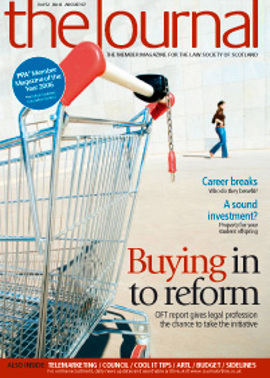Shaping a humane law

Asylum – the granting of sanctuary to those who come to our country to escape persecution in their own – has a long and proud history in the UK. In modern politics it has become a contentious issue with a high public profile. The numbers of asylum seekers, the need to avoid delay and to ensure fairness in the hearing of their claims, the arrangements for their detention, their social needs (in terms of housing, education and employment), the treatment of those whose claims are unsuccessful – all these have become topics for urgent consideration and debate.
Some argue for a more liberal approach to these problems, others for a policy of restriction. There is, however, a broad consensus from all sides of the argument that the UK asylum system cannot be regarded in its current form as “fit for purpose” and is in need of a change. The task of the Independent Asylum Commission (IAC) is to view the evidence and arguments impartially, and make recommendations for improvement.
The IAC, which is wholly independent of government, is funded by and accountable to the Citizen Organising Foundation, a charitable body which represents the biggest campaigning alliance of citizens’ groups in Europe. The decision to set up the Commission was inspired by the success achieved in 2005, when a group of concerned citizens produced the report “A Humane Service for Global Citizens”, which investigated the conditions at Lunar House, the reception centre for asylum claims operated by the Border and Immigration Agency (as it is now known). The report made a series of recommendations which were largely accepted by government and have for the most part been implemented.
The IAC is led by a team of 12 commissioners – jointly chaired by Ifath Nawaz, president of the Association of Muslim Lawyers, and myself, a former judge of the English Court of Appeal. It includes a range of skills and experiences. We start our work from the premise that as a nation state the UK has both a duty to provide sanctuary to those in need and an obligation to offer protection under the United Nations 1951 Refugee Convention. None of our commissioners has any party political axe to grind. Our objective is to praise the strengths and point out the flaws in the current system and rescue confidence in the concept of asylum in the UK.
In collecting evidence to inform our report we have travelled the UK holding a series of public hearings, with each one focusing on a different aspect of the asylum system. In early July our travels brought us to Glasgow, where the subject was the removal of failed asylum seekers. Much of the evidence concerned the trauma caused to them, and to their local communities, by the use of “dawn raids”. Testimony was received from the Scottish Refugee Council, Scottish Executive, Scotland’s Commissioner for Children and Young People, the European Council on Refugees and Exiles, local campaigners, and UNISON. We also heard from local asylum seekers and refugees on their personal experiences about how removal had affected them, their families and the wider community. The hearing gave us a unique insight into the impact of removals on children, families and communities in Glasgow. It will be of great importance when we produce our recommendations for reform.
But the evidence we gained from our Glasgow visit, and our visits to six other locations across the UK, is just the tip of the iceberg. We are encouraging any individual or organisation with an interest in asylum issues – regardless of the perspective – to send us their evidence on any aspect of the UK’s asylum system. Templates for evidence are available on our website (www.independentasylumcommission.org.uk), with more detailed information on our work and contact details. The closing date for submitting evidence is 29 November, after which the commissioners will work together to launch our report in spring 2008. The working experiences of solicitors in Scotland would add a valuable perspective to our survey.
The UK has a proud tradition of offering sanctuary to those fleeing persecution. The IAC wants to see an asylum system that continues this tradition while restoring public faith in the processes that it follows. We strongly urge those who want to be a part of this to contribute their evidence to our work. The greater the input and support we receive, the greater the prospect that our work will achieve its aims.
In this issue
- EAT breaks ground with TUPE insolvency ruling
- Top of the agenda
- Shaping a humane law
- Checkout the debate
- Family cases: another view
- A home of their own
- Break time
- Budget under the bonnet
- Holyrood - Scotland's voice in Europe?
- Ringing within the rules
- Cool IT for hot lawyers
- Future perfect?
- Case that makes the heart leap
- Green about the edges
- An eye on expenses
- The tail in the nail or ponytail
- Off on the right foot
- Scottish Solicitors' Discipline Tribunal
- Website reviews
- Book reviews
- Well drilled
- Good neighbour agreements - bad law?
- One small step for ARTL...
- Contaminated land: a reminder and a warning
- Contaminated land: a reminder and a warning (1)
- SFP: a tough call






